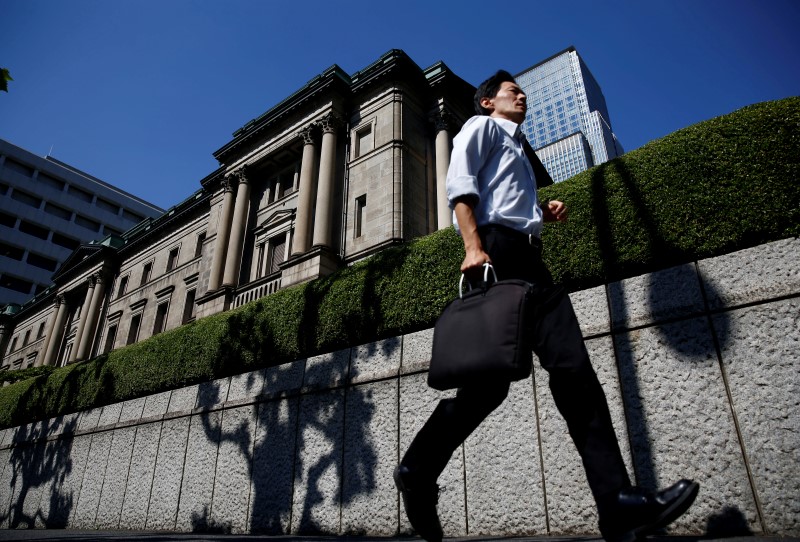By Stanley White
TOKYO (Reuters) - At least two members of the Bank of Japan's board questioned its actions at their June meeting, minutes show, highlighting doubts about the sustainability of its policies.
At the June meeting one board member called for the BOJ to reduce its bond buying while another said the BOJ had switched its focus to interest rates away from buying assets.
At a subsequent meeting on July 29 the BOJ surprised investors by saying it would release a comprehensive review of its quantitative easing in September, further reinforcing the view that the BOJ's current policy may be reaching its limit.
BOJ Governor Haruhiko Kuroda denied on Tuesday that the review of its policies would lead it to scale back on quantitative easing, but the worst sell-off in government bonds in three years shows there is extensive uncertainty about the policy mix.
The BOJ currently buys 80 trillion yen a year of Japanese government bonds to reach its 2 percent inflation target.
The central bank also has a minus 0.1 percent interest rate and buys exchange-traded funds (ETFs) at an annual rate of 6 trillion yen.
Some economists say the BOJ's bond purchases are so large that they cannot continue beyond the next few years. The negative interest rate policy has proved unpopular because it hurts bank earnings and depresses already low deposit rates.
Some investors also worry that the ETF purchases have no impact on inflation expectations.
The BOJ refrained from offering additional monetary stimulus at the June meeting despite imperceptible inflation and weak global growth.
